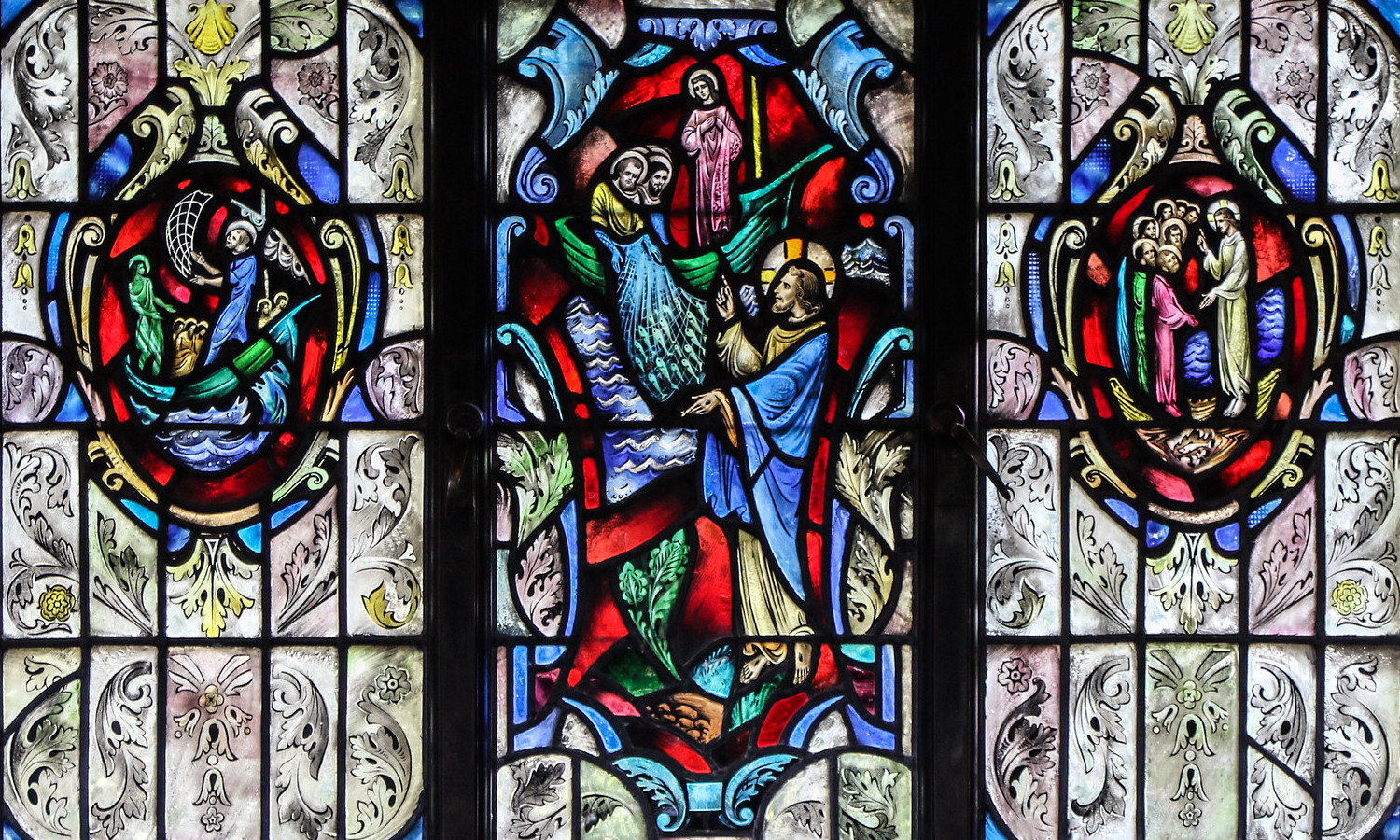“As he was walking by the Sea of Galilee, he saw two brothers, Simon who is called Peter, and his brother Andrew, casting a net into the sea; they were fishermen. He said to them, “Come after me, and I will make you fishers of men.” (Matt 4:19–20)
Whenever I visit my family, one of the things I look forward to most is fishing. For as long as I can remember, it has been one of my favorite activities and ways of relaxing. When I was younger, how much fun I had depended on how many fish I caught; now, that is secondary. These days, when I visit my parents, we will go fishing just to sit on the pier and enjoy one another’s conversation, or even just to sit with one another. Often, I find this as an ideal time to mull over Christ, how he is active in my life, and why he has called me to my vocation.
When Christ called Saint Peter to be his disciple, he was casting a net into the sea. As the first pope, St. Peter was a fisher of men. He became, in a sense, God’s fishing tackle: like a net, he was cast over the whole world, so as to catch as many fish as possible. Christ has also called us Dominican friars to be fishers of men, and as an actual fisherman, I often ask myself, “How am I supposed to catch these fish?” After all, there are more ways to fish than with just a net.
The simplest kind of fishing is with a bobber and bait at the end of the line. I like to think of this kind of fishing as a good image for monks. In this kind of fishing, you wait in silence in order not to scare the fish away. It is great for ponds that are weedy and have mucky bottoms. If St. Peter is the net being cast, the monk is the bait at the end of the line that draws the fish in. In order to attract fish, the bait needs something to lift it up and keep it above the bottom of the pond—it needs a bobber. The same can be said about the monk in the monastery; without Christ, the monk would not be able to remain in his lofty vocation, living a life of silence and stillness. To the inexperienced fisherman, fishing with a bobber may not seem like it accomplishes anything because he cannot see what is going on below the surface of the water. But an experienced fisherman understands that some fish can only be caught by being silent and waiting for them.
Monks, however, are not the only ones who are called to be fishers of men. Every Christian is called to evangelize. Some people are called to catch fish, not in the quiet of a pond, but in the surf of the ocean, which is anything but silent and still. This is a good image for married life. Husbands and wives are called to be fishers of men and to catch people for the Kingdom in the chaos of the world. The key to being successful while fishing in the surf is having a heavy weight anchoring the end of the line, and a pair of hooks a foot or two above the weight. In this image, the spouses are the hooks, and Christ is the anchor at the end of the line, keeping it in the sand below the rough surf. Without the anchor, the line and hooks would be thrown about by the waves and spit out of the ocean back onto the beach. Just as some fish can only be caught by patient waiting, so too some fish can only be caught in the surf. We need fishermen who live in the world and catch those who would never darken the door of a church of their own accord.
There are as many types of fishing as there are vocations. Friars, like us Dominicans, can be compared to fast-moving lures, because we are constantly moving through the world. The Missionaries of Charity can be compared to noodling for catfish—they preach the Five Fingered Gospel, using their hands as lures as they go into the dark holes of the world to save the destitute.
Each person is called to be a “fisher of men.” The only question is: What kind?
✠
Photo by Fr. Lawrence Lew, O.P. (used with permission)







